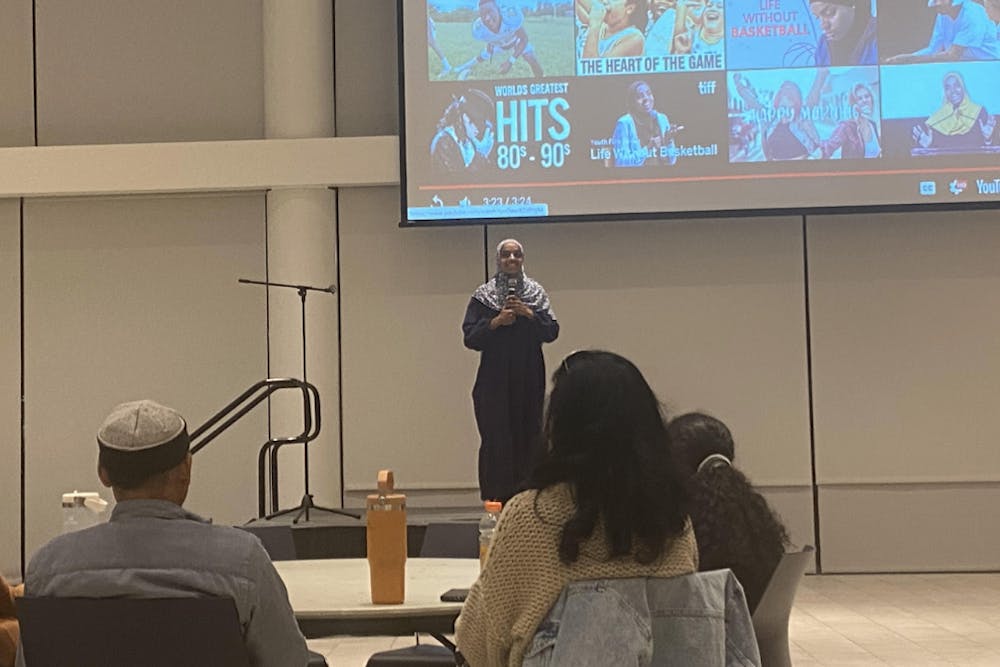By Karla Fonseca
Staff Writer
The Muslim Student Association (MSA) invited Bilquis Abdul-Qaadir to speak about her experience playing basketball as a Muslim woman and her remarkable story of fighting for her right to wear her hijab. Being unable to play professional basketball due to her hijab, she grew to become proud of being Muslim and understood the religion at a deeper level.
“The purpose of this event is to get people familiar with Islam and raise awareness about the religion,” said sophomore electrical engineering major Talha Murad. “We hope to give some perspective of somebody that went through the discrimination that faces Muslims everyday.”
The event took place on Nov. 2 at 6 p.m. in the Student Center in room 100. Dinner was also served following Abdul-Qaadir’s talk.
Abdul-Qaadir began her speech by discussing how basketball was involved in her childhood and adolescence. She became determined to get a basketball scholarship in order to attend college, as her family would not be able to afford college otherwise.
“From then on, any break that I had, I was dribbling the ball outside, I was working on my body, I was laying in my bed at night and I would work on my follow-through,” Abdul-Qaadir said. “The grind was absolutely real. I knew I had to be the best in my city so that I could stand out and get this scholarship.”
Abdul-Qaadir attended the University of Memphis on a full scholarship to play Division I basketball. Wanting to play professionally in Europe after college, she aimed to play in the leagues of the International Basketball Federation (FIBA). However, she was informed of a rule prohibiting headwear larger than five inches, preventing her from going further.
“For the longest time, I was identified as the ‘Muslim girl with hoops’ or the ‘Hijabi Hooper,’” Abdul-Qaadir said. “These were the identities that I wore, and then it was taken away — not because I was injured, not because I wasn’t good, but because I was Muslim and wore my faith physically.”
Confronted by the discrimination, Abdul-Qaadir decided to fight and focus on petitioning to exempt FIBA’s rule. Three years later in 2017, FIBA overturned the rule.
“I know a lot of Muslims struggle, especially those who physically wear their faith, but hearing about it from a person who actually went through struggles, is very inspiring,” said junior computer science major Faiza Hoque. “There are times for me personally when I have gotten to low points in my life, but seeing someone who is so successful also struggle touched me.”
Inspiration from Abdul-Qaadir’s speech reached everyone at the event, regardless of their religion.
“This event was very educational and inspiring,” junior biology major Sarah Folk said. “As someone who’s not Muslim, it’s nice to see the Muslim perspective of her facing adversity as a woman in basketball.”
The event brought in new perspectives on Islam, through the eyes of Abdul-Qaadeer, and helped the attendees understand the significance of Islam to herself and others.
“We don’t really see a lot of hijabi sports players,” said Subhana Ahmed, senior biology major, “so this event was a unique way of integrating both sports and Islam and displaying the intersectionality of her being a Muslim, a hijabi, a black woman, and a basketball player.”










